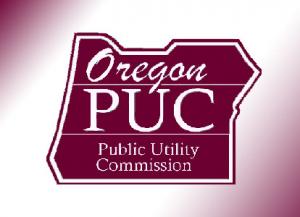Oregon Clarifies Implications for Water Utility CIAC

Citing a little-publicized provision in the recently promulgated Tax Cuts and Jobs Act of 2017 (TCJA) that is applicable solely to water utilities, the Oregon Public Utility Commission has acted to protect average ratepayers from holding the bag when a water utility faces a greater tax liability on a post-TCJA basis. The commission explained that while most of the discussion surrounding the TCJA has centered on the decrease in the maximum income tax rate for corporations, one particular term included in the TCJA actually has the potential to increase taxes for water utilities, their lower corporate income tax rate notwithstanding.
The commission stated that under long-standing tax law, contributions in aid of construction (CIAC) received by water utilities were not treated as income and therefore did not give rise to any associated tax liability. However, the commission said, that exemption, which was specific to water companies and was not available to either energy or telecommunications utilities, was eliminated upon passage of the TCJA. As a result, the commission acknowledged that the potential exists for certain water utilities to incur new tax expense dating back to January 1 of this year, when the TCJA went into effect.
The commission related that the matter had been brought to its attention by Avion Water Company, a water utility serving an area in the eastern part of the state, including Bend. Avion informed the commission that it anticipates significant CIAC in 2018 and beyond, especially in Bend, where ongoing growth has led to a torrent of new development and construction.
The company affirmed that many residential developers will build the utility infrastructure necessary for serving a new subdivision and then transfer the completed system to the utility at no cost. While the utility takes ownership, such property is not recognized in rate base and no return is earned thereon inasmuch as the utility itself had invested no capital in the assets. And historically, such CIAC was accompanied by no associated tax liability either.
That changed when the TCJA was signed into law just before Christmas Day. Under the new tax code provisions, the waiver of taxes on CIAC is eliminated. But Avion suggested, and the commission approved, a tariff amendment under which any additional CIAC-related taxes would be paid by the developers themselves rather than passed on as another cost of service to customers. More particularly, the utility proposed that it be permitted to “gross up” the CIAC it receives from a developer so as to reflect the new tax obligation.
In considering the utility’s plan, the commission remarked that while Avion was the first water company to come forward with concerns about the treatment of CIAC under the revised tax code, it was to be expected that other water utilities will follow suit. Consequently, the commission deemed it reasonable to rule on the Avion petition as a means of offering guidance to other water utilities.
At the same time, though, the commission found that given the far-reaching impacts of the TCJA, it would be prudent to keep an eye on the CIAC tax liability issue. Therefore, consistent with a recommendation from its staff, the commission agreed that deferred accounting for CIAC was called for. The commission averred that such a tracking mechanism would be appropriate and would ease the transition should the tax exemption for CIAC eventually be reinstated or otherwise modified. Re Avion Water Co., Inc., UM 1631, Order No. 18-072, Feb. 27, 2018 (Ore.P.U.C.).



